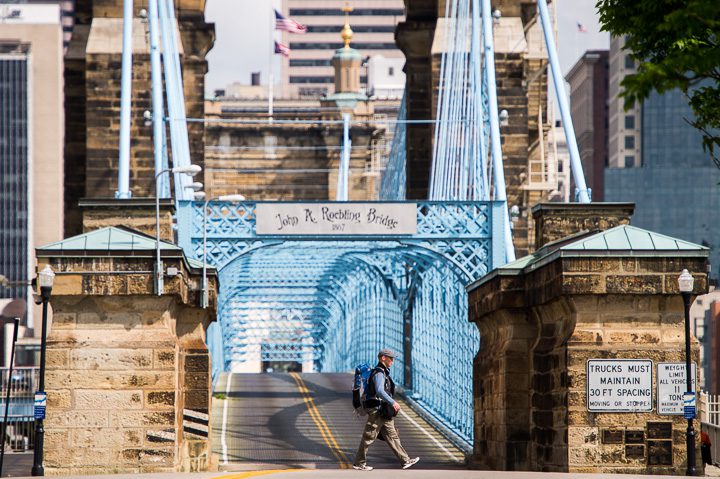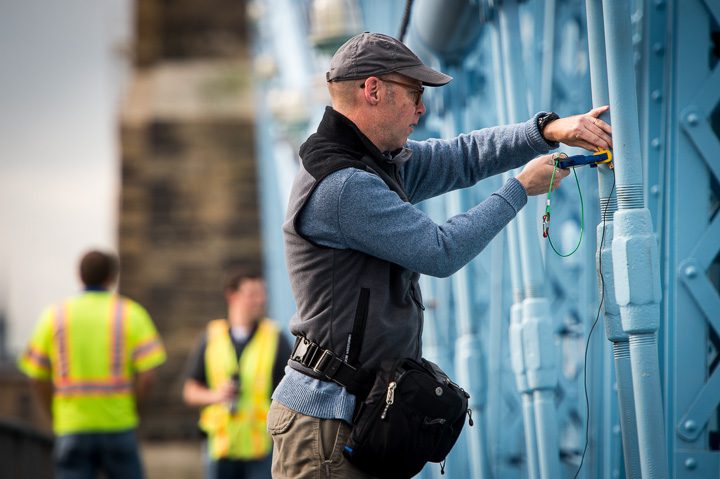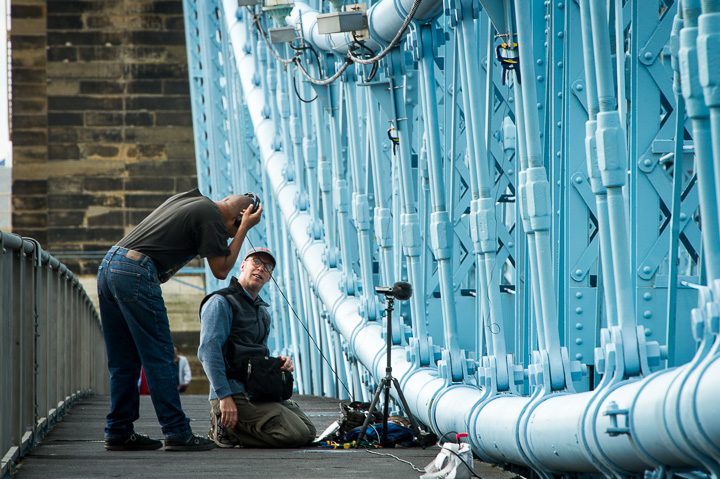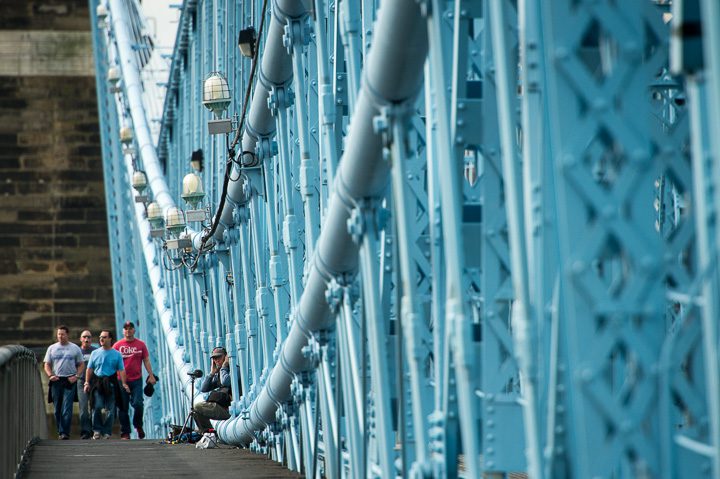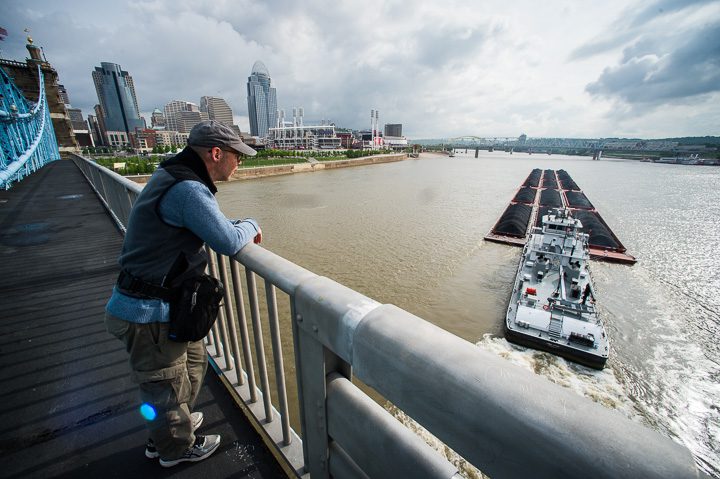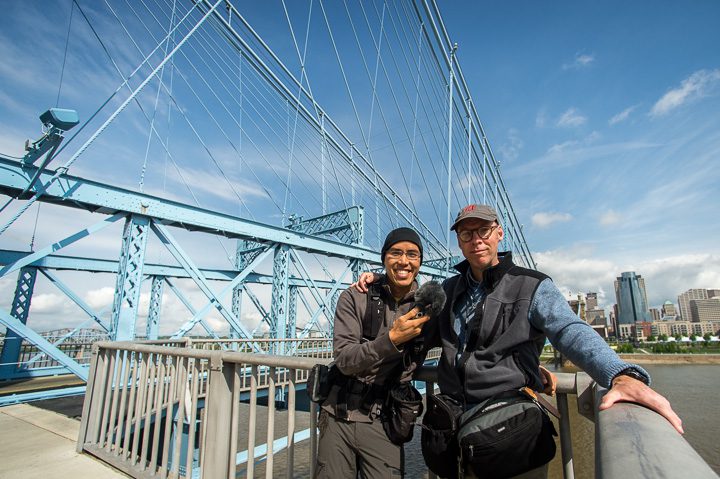
In April 2016 I recorded an abandoned small steel bridge near my home. The results were okay but nothing great. I needed something bigger and better. And found it, at the John A. Roebling Suspension Bridge. The historic 1,056-foot-long bridge, the prototype of the more famous Brooklyn Bridge, spans the Ohio River from Covington, Kentucky to Cincinnati, Ohio.
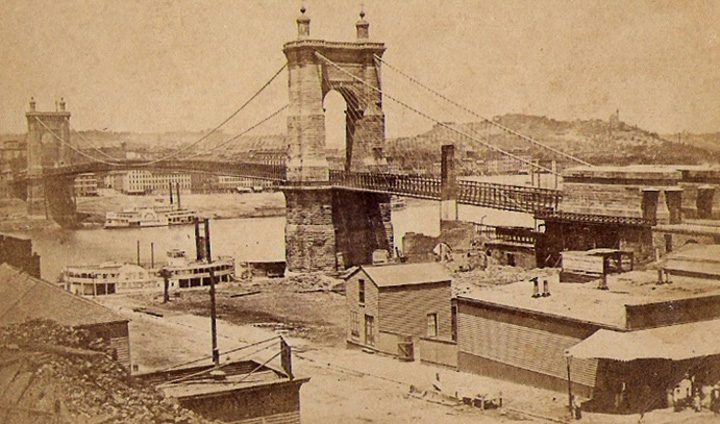
The first pedestrians made their way across this now iconic bridge on December 1, 1886, after handing over a 3-cent toll. At the time they were walking across the longest suspension bridge in the world.
Wood comprised the bridge’s original decking. Wood gave way to corrugated steel to accommodate heavier loads. And it is the low, rumbling sound of steel mixed with tires that one hears as they drive across. Locals refer to the bridge as the “singing” bridge.

The bridge was originally painted a “Spanish” brown, according to former committee president Ralph G. Wolff. Then painted green. During its major 1890’s overhaul, it was black, white and blue. Not until 1976, did it get its current blue color. This was a compromise with a committee member who suggested painting the bridge red, white and blue in honor of America’s bicentennial. The bridge has become “a symbol of our entire region,” added Wolff. It is also a backdrop in the 1988 film Rain Man, and the 2011 film The Ides of March. Wedding parties have their photographs taken on the bridge’s pedestrian walkways.
The John A. Roebling Bridge is well-traveled with both automobile and foot traffic. Attaching contact microphones with wires leading to little black boxes would attract suspicion (think The Bridge on the River Kwai). I played it safe and received permission to record from the Kentucky Transportation Cabinet.
In this Soundcloud excerpt, you’ll hear the recording of the Kentucky shoreline near the bridge captured with traditional microphones. This transitions to the more “hollow” contact microphone recording of the bridge. And finally, we return to the sounds along the shoreline.
Recording note: Recorded May 3, 2016, during the morning rush hour. Both Line Audio CM3 in an ORTF configuration and two Barcus Berry contact mics were tracked to a Sony PCM M10 with a Sound Devices Mixpre-D at the front end. Recorded at 96 Khz/24-bit.


